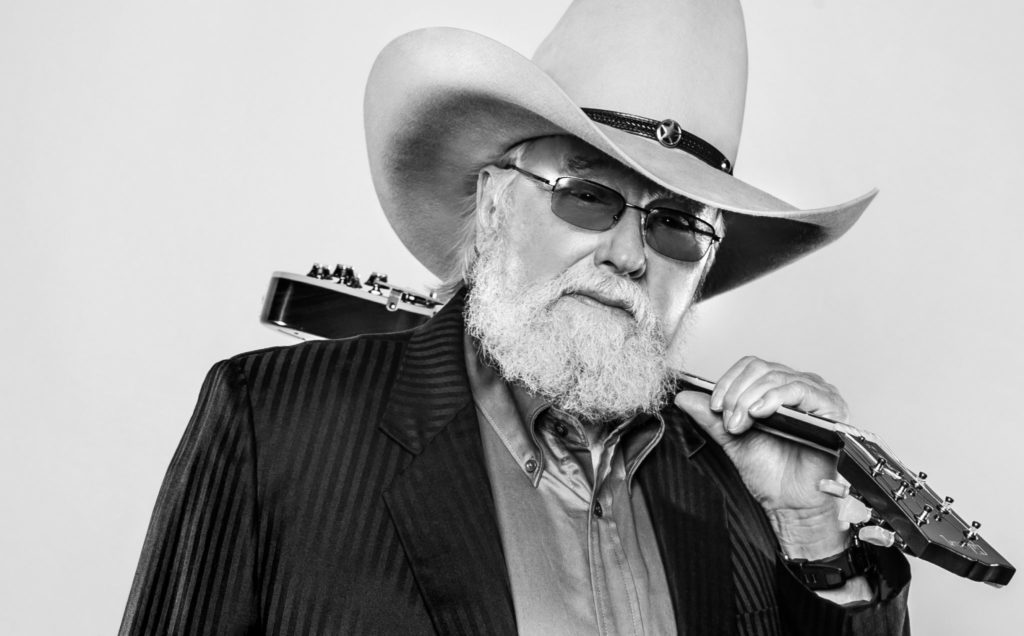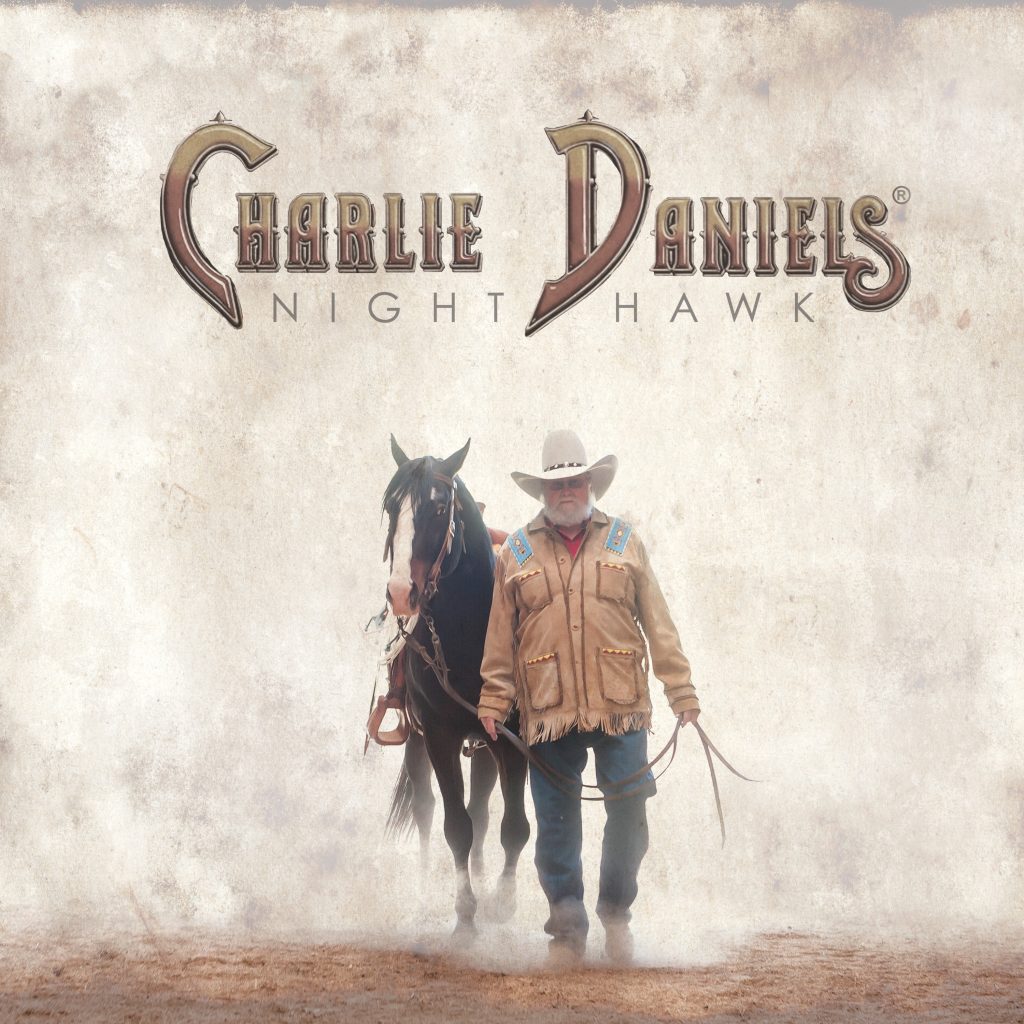 With a storied and varied career that has lasted nearly six decades of songwriting and performance excellence and generated legions of devoted fans it’s not the accolades, the money, the fame or the impressive musical legacy for which Charlie Daniels is most proud.
With a storied and varied career that has lasted nearly six decades of songwriting and performance excellence and generated legions of devoted fans it’s not the accolades, the money, the fame or the impressive musical legacy for which Charlie Daniels is most proud.
For the man who wrote and performed the legendary song The Devil Went Down to Georgia, which is now firmly ensconced in modern North American culture as a truly classic composition, it’s about the people he works with – his musical family – that is most significant for him.
“I usually surprise people when I say this, but one of my most cherished accomplishments is keeping 30 people continuously, and steadily, and gainfully employed for 30 years or longer. That’s very important to me. I have some people who have been with me for 40 years. When you have the same people night after night after night on the stage, off the stage and behind the scenes working for you – they become family. You go through births and deaths and grandchildren and divorces, all kinds of things with these people. You do see them as members of your family and when something happens to them, it kind of happens to you too. There are many wonderful things about my job, but that’s one of the really wonderful things is having that huge extended family,” said the esteemed and accomplished artist from a tour stop in Northfield, Ohio.
The date is part of the current tour for The Charlie Daniels Band, one of more than 100 shows they will perform this year throughout North America – and that’s not including a proposed multiple-night stint at the Grand Ole Opry at some point later in the year.
For any working musician, more than 100 gigs a year, from coast to coast to coast, is a remarkable schedule. And not to sound patronizing, but it’s even more remarkable when you consider the fact that Daniels will turn 80 on Oct. 28.
His incredible reputation as a top live performer, his phenomenally diverse songwriting pedigree, and his breathtaking musicianship – particularly on the fiddle – has earned him induction in the Country Music Hall of Fame’s class of 2016, alongside Randy Travis and Fred Foster.
It’s an achievement that is still hard for the normally effusive Daniels to wrap his head around, even though he was inducted into the Grand Ole Opry in 2008 and the Musicians Hall of Fame in 2009.
“You know, it’s really hard to articulate, to be honest with you. As you might imagine, I have had the opportunity to talk about it several times since I got the news that it was happened and I have not found the right words to adequately explain the honour that I feel and the blessing from God that I feel by being put in,” he said.
“It was wonderful to be told by the president of the CMA and all these other music industry dignitaries. It’s really and truly wonderful. And wonderful is such an overused word and I am still not sure that it gets the gravity of what I am talking about across or not. But I am so deeply honoured and so blessed. I have been doing this for 58 years, since I cut the apron strings, and it’s been a joy.”
Although the induction is for the Country Music Hall of Fame, a number of Daniels’ biggest songs were ones that seemed to cross outside of the sometimes limiting confines of the country music genre, generating more mass appeal. Such was the case with the incredibly successful The Devil Went Down to Georgia, which came out in 1979 and made it to number 3 on the Billboard Hot 100 chart. Other crossover hits included In America, The Legend of Wooley Swamp, and Uneasy Rider.
And throughout his impressive repertoire as a songwriter, there is always a hint of one style and a dash of another mixed in with his unique blend of what many today would call traditional country music.
“Actually you’ve got me thinking about these things you’re talking about and I ask why? Why when I sit down to write a song do so many different styles of music creep into it? And the only thing that I could come up with was that when I was a kid in North Carolina, there really were not a lot of radio stations. I am speaking about 75 years ago. There were so few radio stations around that the ones that were there had to play something for everybody. So they would start off their day with country music with some bluegrass and then they would play something for the ladies who stayed home and took care of the house, which was a lot of them at that time. And then when it was time for the kids to come home they would play whatever the popular music of the day was which, when I was little, was Big Band music,” Daniels explained.
“And then of course on Sunday it was any kind of Gospel that you could find, from the formal big choirs to the black Gospel combos. I just heard so much music. When you’re born in the southeast like I was, of course you’re going to also be exposed to the Blues. So I heard so many different kinds of music when I was a kid that I guess when I got ready to start writing music, all those styles kind of stayed with me and I would just throw something different in there every one in a while.”
Besides his induction into the Country Music Hall of Fame and the display at the Country Music Hall of Fame and Museum, Daniels also recently released a new album, Night Hawk. It’s his 31st studio album (not including compilations, live and Christmas records) and first since his Bob Dylan tribute album, Off The Grid: Doin’ It Dylan.

Night Hawk is an album about cowboys, but not necessarily about the Old West gunfighter. It’s Daniels way of paying tribute to an honoured tradition and a rugged way of life that goes beyond the Hollywood myths to celebrate the hard-working, hard-living individuals who, even in the 21st century, ride the wide open ranges of the North American prairies, driving cattle or other livestock.
“This album is something that I have been wanting to do for a long time. Some of the songs I have had in my mind to record for a long time. Now I didn’t write these songs, what I mean is I have them in my mind with the intention of recording them – some for upwards of 20 years. I would just hear something one day and say, ‘that’s one of those songs that I am going to put on that album that I have been talking about doing one day,’ and stick it in the back of my mind. And when I finally got enough tunes I just went in and cut them. What I wanted to do was an album for the working cowboy,” he explained.
“It’s not the big time, dark mysterious character that rides into town and shoots somebody and saves the village and all that western movie stuff. I am talking about the real cowboy that exists to this day. So I was trying to pick songs that would apply to their daily life, to things that they like and the music that they danced to, and that sort of thing. I do have Ghost Riders in the Sky and things like that, but the other stuff is pretty straight-ahead cowboy music.
“Like the song Night Hawk; that’s a story about working cowboys and of course some guns were involved but that wasn’t a big part of the west. The big part of the west was just cows. That’s where the money was in getting them to market and getting back and doing it all again next year. That was the big deal and it wasn’t easy. It took a certain kind of person to do that sort of work. Getting there and getting back was a job in itself and always a good story. So that’s what I wanted to celebrate and that’s what I was saving songs for. It’s not a real radio-friendly sort of record and I knew it wouldn’t be. But I didn’t do it for that. I recorded it because I think it’s the kind of thing for people who like sitting out on the back porch with a couple of guitars and a fiddle, just reminiscing and telling old stories.”
Daniels understands the importance of new technology in the various aspects of the music business, but doesn’t rely upon it for his recordings or live shows. He has been following the huge paradigm shift that has been happening with the advent of digital downloading and the seismically significant negative impact it has had on the record business, particularly for the bigger, more corporate labels.
“I follow it, but I can’t really keep up with it all, so I don’t really try to. It changes constantly. And I think one of the worst things that kind of happened was when lawyers started running record companies. And I can give you a very valid reason why. When this kid [Shawn Fanning and two others] came up with Napster and the concept of file sharing and downloading, to anybody who had half a brain in their head, who had any eyes at all on the future, they had to see that this was the future of music. The Pandora’s Box has been opened and they were never going to close it again,” he said, emphatically.
“So let’s go forgive him of his sins and hire him. Think of how simple it would have been. You have a kid who invented this technology and you tell him he has two choices. You say we’re the biggest record companies in the world and we’re all going to band together and we have access to the finest lawyers in the world and we’re going to do our best to put you in jail. Do you want that? Do you want to fight us? Or do you want to come on board and we’ll give you a lot of money to help develop this technology for us, and we’ll get some patents on it. That would have been the sensible of thing to have done, that way you’re controlling the technology, it’s not controlling you.
“One thing I do like is the huge amount of smaller independent record labels that have come out. Being able to download means you don’t particularly have to do hard copies and albums. You can just put music up online and people will come to you and buy it. So there are good things and bad things, but what we really need are some more Neil Bogarts [founder of Casablanca Records] and Ahmet Erteguns [Atlantic Records co-founder] on the music business – people who are innovative who are not there because they have a law degree but because they love music.”
An exhibit in honour of Daniels’ induction, called Million Mile Reflections, will be on display at The Country Music Hall of Fame in Nashville from Sept. 23 until March of 2017. For more information, visit http://countrymusichalloffame.org.
For more information on Daniels and his up-to-date touring schedule, visit http://www.charliedaniels.com.
* Jim Barber is a veteran award-winning journalist and author based in Napanee, ON, who has been writing about music and musicians for a quarter of a century. Besides his journalistic endeavours, he now works as a communications and marketing specialist. Contact him at jimbarberwritingservices@gmail.com
SHARE THIS POST: